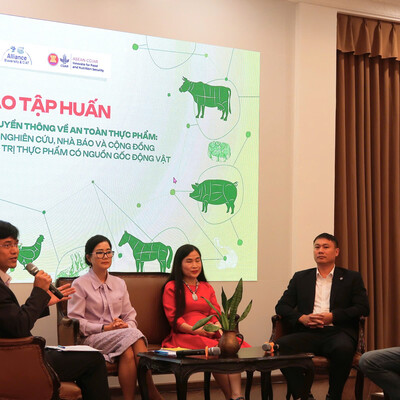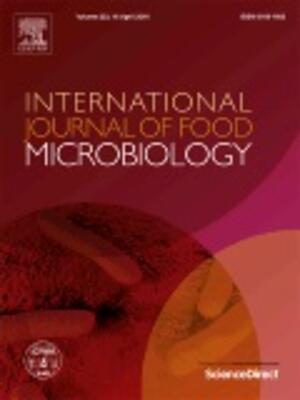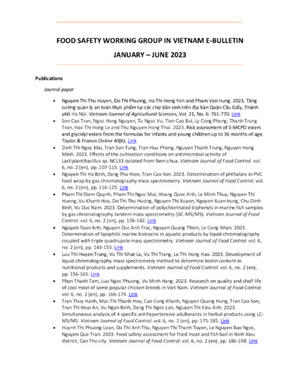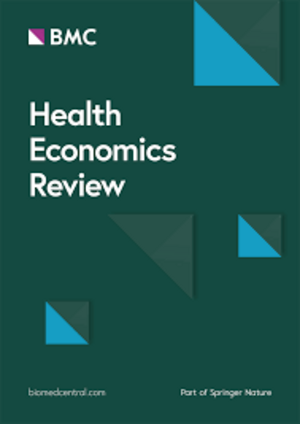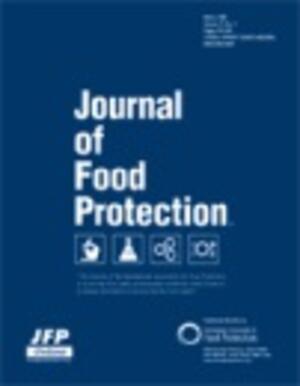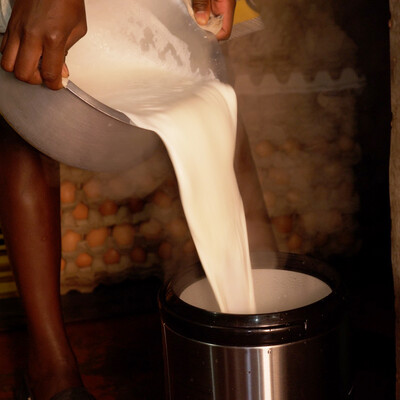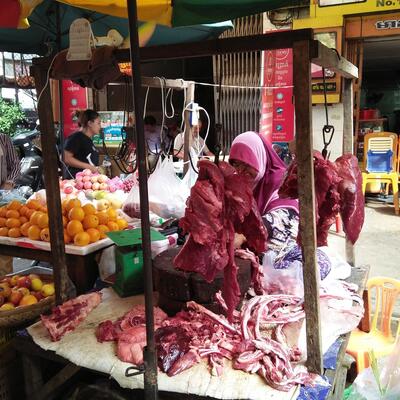
New project to tackle antimicrobial resistance in Vietnam’s pig sector
A two-year project that will assess veterinary health management and veterinary drug use in Vietnamese pig farms has been launched.
The Health and Antibiotics in the Vietnamese Pig Production Project, known as VIDAPIG, is a collaboration between the University of Copenhagen, the National Institute of Veterinary Research, the National Institute of Nutrition and the International Livestock Research Institute (ILRI).
It will carry out research to identify and evaluate factors affecting veterinary health and veterinary drug use with the aim of establishing antimicrobial usage practices that are based on a One Health approach across the smallholder pig sector.
The project will be implemented from February 2018 to January 2020 in Bac Ninh Province.
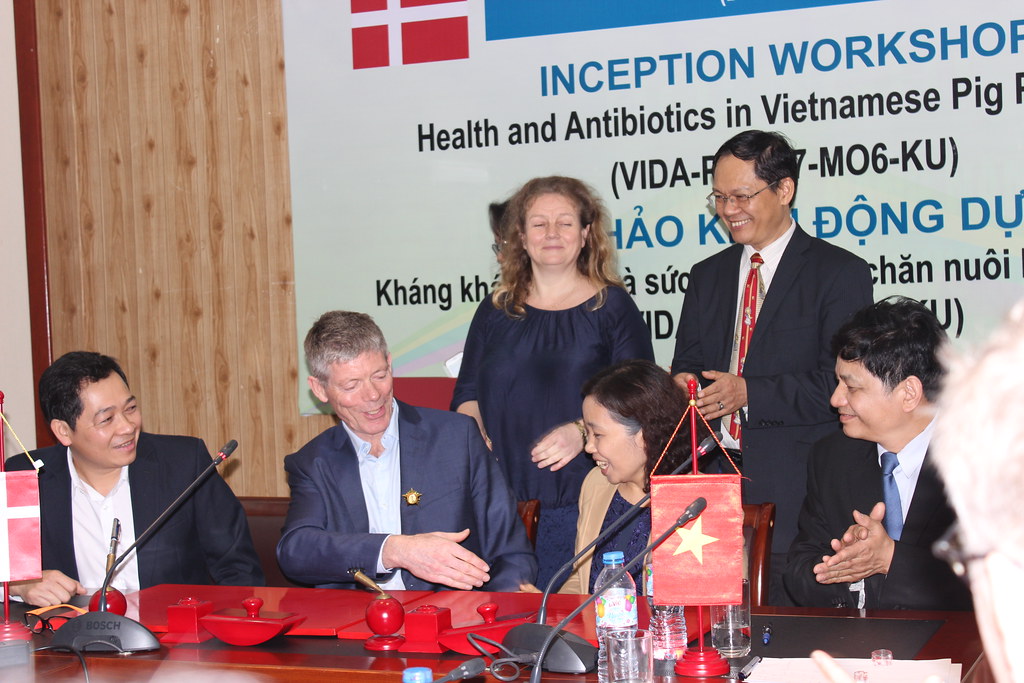
From left: Hung Nguyen, ILRI regional representative for East and Southeast Asia, Anders Dalsgaard from the University of Copenhagen, Pham Thi Ngoc, deputy director of the National Institute of Veterinary Research and Le Danh Tuyen, director of the National Institute of Nutrition. From left (behind), Katja Majbom Goodhew, commercialcounsellor at the Danish Embassy in Vietnam and Chu Van Chuong, deputy director of International Cooperation Department of the Vietnam Ministry of Agriculture (photo credit: ILRI/Chi Nguyen).
‘VIDAPIG’s research approach is focusing on finding solutions and contributing to changes in antimicrobials use in order to reduce animal drug resistance. Traditional research approaches focus only on monitoring antimicrobials use and the development of drug resistance,’ said Anders Dalsgaard from the University of Copenhagen, the project team leader.
The Danish Ministry of Foreign Affairs is funding the project through the Strategic Sector Cooperation Facility which is aligned with the ‘Strategic Sector Cooperation (SSC) on Food Safety in the Pork Value Chain’ between the Vietnamese Ministry of Agriculture and Rural Development and the Danish Ministry of Environment and Food in March 2017.
The project was launched at a workshop on 2 March 2018 at the Vietnamese Ministry of Agriculture and Rural Development in Hanoi.
Read about other projects by ILRI in Southeast Asia that are using a One Health approach:
Research for safer pork products in Vietnam
Vietnam-based project to design key maps and tools for managing climate-sensitive diseases
New project to strengthen food safety in Cambodia






